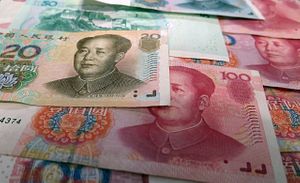How does China plan to contest U.S. financial hegemony, and what does this contest mean for the power of the Chinese Communist Party (CCP) over China’s private sector economy? A new report from the Center for New American Security examines the Digital Currency/Electronic Payment (DCEP) project, China’s latest efforts to develop and take advantage of technology in the financial domain. “China’s Digital Currency: Adding Financial Data to Digital Authoritarianism,” written by Yaya Fanusie (adjunct senior fellow in the Energy, Economics, and Security Program at CNAS) and Emily Jin (research assistant in the Energy, Economics, and Security Program at CNAS), details China’s efforts to yoke the development of digital currency to both the domestic and international interests of the CCP.
China is pursuing the Central Bank Digital Currency (CBDC) project for several inter-related reasons. It would give the Chinese government an unprecedented degree of insight into the functioning of the Chinese financial system, and consequently of the Chinese economy. The digital currency project gives the People’s Bank of China (PBOC), and thus the CCP, more control over the activities of firms within its borders, and especially over the powerful financial services and payment companies that have become critical to the functioning of the Chinese economy. Financial transparency would also support long-term efforts to achieve full convertibility of China’s currency, as well as enhance the ability of the state to fight crime, of both the digital and ordinary variety.
Finally, and perhaps most importantly, the Chinese government wants the kind of control that digitization offers because it wants to make the finances of potential regime foes transparent to the state. The effectiveness of any system to monitor the activity of dissidents depends, at its core, on access to data, and the CBDC could provide China’s central bank and political authorities with both aggregate and individualized data that would enable them to track how regime opponents are moving and using funds. The idea that China could harness financial technology to increase repression is disquieting to those who believed that the increased complexity of the financial and economic system would eventually decenter the CCP from China’s political life.
The report lingers on perhaps the most insidious implication of China’s digital efforts, the prospect that the CCP could export its currency management system to other authoritarian countries. The extent to which China could create an exportable “toolkit” for other authoritarian regimes in uncertain, but the model itself would undoubtedly be attractive to governments interested in clamping down on the financial activities of subversive and resistance organizations.
Of course, all of this happens against the backdrop of the successful weaponization of financial monitoring and currency tools that the U.S. Department of the Treasury and Department of Homeland Security have pursued over the last three decades. Like other countries both democratic and authoritarian, China has chafed against the power that the dollar-as-reserve-currency has lent to the United States, and especially against the hamfisted tactics of the Trump administration. In this sense, the DCOP is less the opening salvo of competition in the financial domain, and more a signal that the CCP fully understands the stakes of financial competition, has the tools to compete, and is preparing to fight on its own terms with all of the advantages that it enjoys.
































